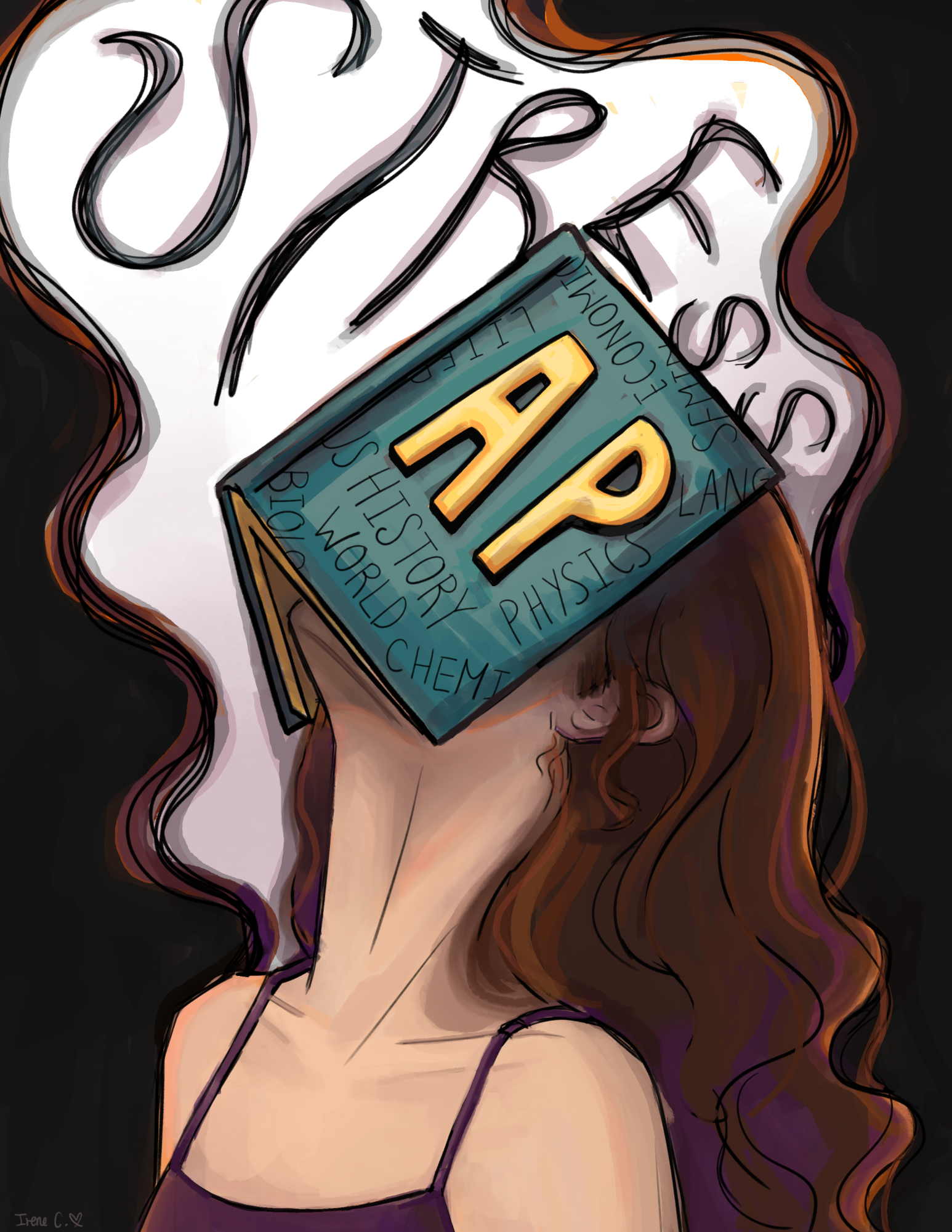The upcoming Advanced Placement (AP) exam season has elicited a wave of self-consciousness, if not fear and anxiety, for many students. Students often express pressure for these exams, with the idea of retaining information learned throughout the year, blanking out on the exam, or stressing about passing the exam to achieve college credits and making their $100 payment worthwhile.
AP exams serve as a tool to assess the skills of particular college-level subjects. A good score on these exams can earn students a good look on college applications and college credits, resulting in a stronger drive to do well.
“I’m taking the APUSH exam this year, and I’m really scared. I want to get a five, but how do I make that a reality?” said Arni Shashi ’27.
Here are some general tips that the AP teachers at Edison High School want students to know and understand to help relieve stress and clarify preparation for in order to ace these exams.
Ms. Diane Frey: AP Language and Composition
Frey, an AP Language and Composition teacher, informs students that AP exams examine students’ test endurance and reading and writing skills. She advises students to build knowledge and capability over time.
“Waiting until the end of April to take the course seriously is foolish; in other words, you haven’t internalized any valuable sentence structures, meaningful vocabulary, or critical thinking skills if your work is perfunctory leading up to testing season,” said Frey.
While this warning is important to the upcoming AP exam season, it should be applied to any high-stakes situations in life.
“Like an athlete or a musician, a relaxed body creates a very adept and flexible mind,” Frey said.
Ms. Leanne Rubiano: AP US History
Rubiano highlights that an AP class is vastly different from a regular class: fast-paced and rigorous with higher expectations for the students. She emphasizes the need to study, both during class and for the AP exam. She also encourages students to keep an eye on time during the tests.
“Study, study, study; manage your time in the weeks leading up to your exams and have a study plan. Don’t cram,” Rubiano said.
Ms. Jennifer Przygoda: AP Biology
Pryzgoda highlights that the main difference between AP classes and regular classes is that students are not put through lectures in her AP class, instead using mainly hands-on material for guidance.
Like others, Pryzgoda stresses the importance of relaxing before the test and remaining positive.
“Stress is the enemy,” she said. “If you start feeling negative during the test, then you need to do a quick reset of your mindset. Positive thoughts can help you reach your goals.”
Importantly, before anything, Pryzgoda says to prioritize health and well-being and not take the test as a measure of one’s self-worth. Moreover, she emphasizes more than just pretest prep. She recommends participating in class, as the more effort one puts into the class, the better the preparation will be.
“AP prep is a year-long event. Don’t think that you can just study the week before,” said Pryzgoda. “If you are studying all year long, you will be better prepared.”
Ms. Lynne Tierney: AP Microeconomics and Macroeconomics
Tierney, an AP Economics teacher, wants students to understand that an AP class differs from a regular class because of the necessary independent effort.
“I expect students to read the textbook and review supplementary resources to give themselves context and become familiar with terminology, formulas, and graphs ahead of time,” said Tierney.
The preparation needed for this exam is independently derived. From the perspective of time left, taking a practice test or two and focusing on practicing what you mostly know is key to getting questions right during the exam.
“Success requires sustained attention, persistence in practice, and a curious mindset so you notice economic concepts all around you,” Tierney said.
Although dedication and commitment are crucial during this period, mental and physical health should also remain a top priority. A positive mindset and brain are also key players in acing the exam.
“What’s that quote from The Alchemist?” Tierney said. “‘The universe conspires in helping you achieve it.’ Believe it.”


